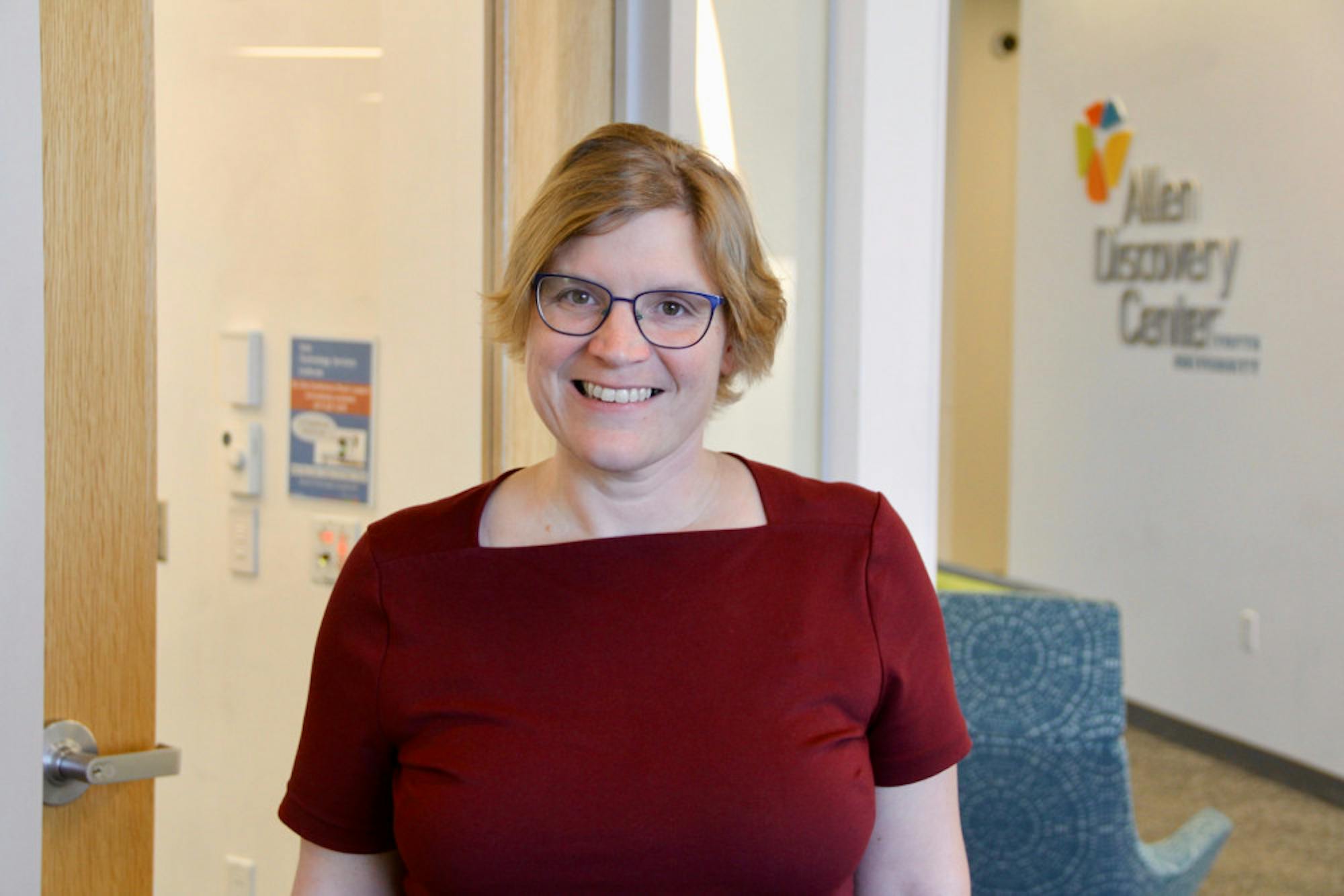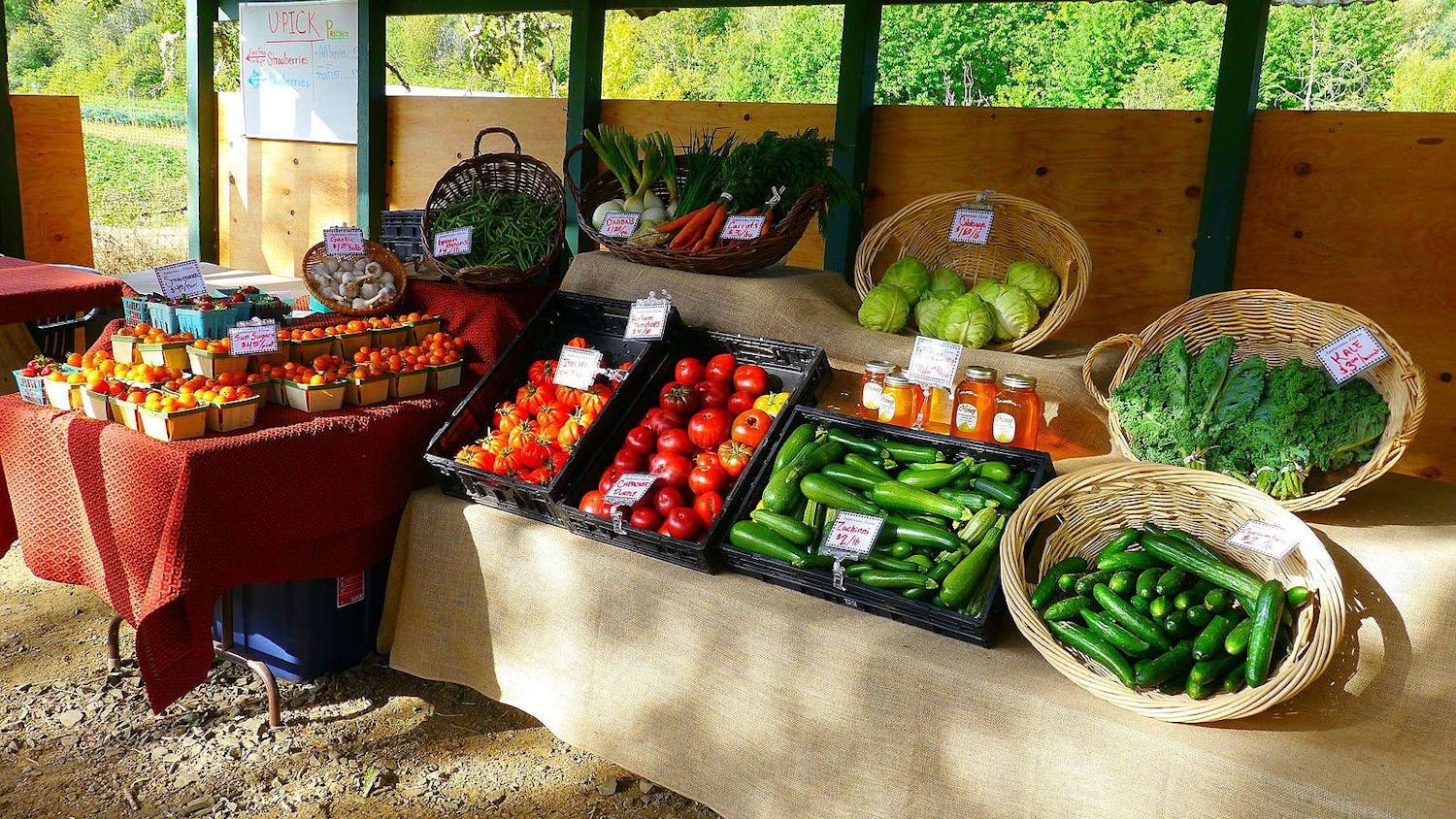On the third floor of the Science and Engineering Complex, researchers work with water, and sometimes strains of deadly diseases, in pursuit of global humanitarian solutions. The Lantagne Lab, housed in the Department of Civil and Environmental Engineering, investigates infectious disease control by studying the effectiveness of water and sanitation.
According to Daniele Lantagne, the principal investigator and founder of the lab, the Lantagne Group focuses on humanitarian and emergency water sanitation. The researchers concentrate projects on questions that come from the field: Lantagne said much of her research has been inspired by conversations she had while traveling.
“I've been in over 50 countries and all these people ... asked me questions, and they're like, what amount of chlorine should I add to treat this water?" Lantagne said. "That’s an easy one, and then they asked me, should we use chlorinated water to make therapeutic milk? And I'm like, I have no clue. We should do a lab study on that."
According to Lantagne, one of the lab's key responsibilities is disseminating its findings to a wide range of organizations and people who work to improve water quality, sanitation and hygiene.
“[Our findings] go to donors, they go out in manuscripts, they go to emergency responders, they go to the people implementing, they go to host national governments, they go into national cholera response plans,” she said.
Lantagne said that her work stands out because it blends students and professors from interdisciplinary backgrounds like her own.
“I have an interdisciplinary background. I was trained as an engineer, but my Ph.D. is in infectious tropical diseases, and I worked at the Center for Disease Control and Prevention for eight years before I came to Tufts,” she said.
According to Mustafa Sikder, a Ph.D. candidate who studies water supply and infectious diseases throughout the world, this diversity of academic backgrounds and experiences is part of what drew him to the Lantagne Lab.
“One of the things I like about this group and working with Daniele is that she's also an engineer by training, but the work she does is not just focused on engineering. It’s a mix of public health engineering and so many other fields, even international development,” he said.
Lantagne said that her lab’s research primarily focuses on places that don't have water infrastructure. These locations of interest can vary from places in the process of developing water infrastructure to places where conflict or natural disaster have decreased people's access to these systems.
“It's part of this sustainable development goals to get people on-plot water, but there are places in the world where people are losing access. Syria went from greater than 90% access to pipe traded infrastructure water to less than 10% access in seven years of conflict,” Lantagne said.
For example, Sikder researches how humanitarian emergencies impact water supply.
“We're looking at different water supply interventions, starting from short-term interventions that are normally implemented right after the crisis. When there is no existing water system or the system is not working, some of those short-term interventions are water trucking,” Sikder said. "And then we also looked at some of the long-term emergency responses such as the work that UNICEF is doing in Syria, which is a seven-year-long response; it started right after the crisis."
His current research encompasses multiple countries and focuses on different aspects of water supply and infectious diseases, including Sierra Leone, the Democratic Republic of the Congo and Bangladesh.
“UNICEF has this thing they call multiple indicator cluster survey. It’s a very comprehensive survey looking at water supply, sanitation and hygiene facilities in urban rural areas. It’s a large data set and looks at all these different parameters, so it will have indicators on people's reported diseases, water quality parameters,” Sikder said.
According to Lantagne, many of these water, sanitation and hygiene (WASH) projects require quick, creative solutions at the local level, particularly in places where infrastructure water is unavailable.
“What do you do in the interim? How do you do how do you do WASH projects? Do you teach people to treat their water at the home with a filter or chlorine? Do you teach people to have a latrine so their feces isolated from the environment? Do you teach people to wash their hands? These kinds of WASH interventions often go down to the household or community level,” Lantagne said.
She discussed how the Lantagne Lab focuses on creating guidelines for resilient interventions, which essentially means that they limit the risk of any human and environmental errors while treating water. One project they are currently working on is proving whether a field intervention technique commonly used in cholera outbreaks is actually effective.
“There's a particular intervention that's done in cholera outbreaks where you put someone sitting next to the water source for the community, and as people collect water, they use a syringe to squirt chlorine into the water," she said. "The idea is to stop transmission of cholera becausecholera is super susceptible to chlorine. But no one's ever actually tested it in the field or the lab because it's a tradition."
In order to conduct these tests, the lab works directly with cholera strains, mixing it with different chlorines to see which are the most effective.
“So, we have cholera in our lab, and we make different types of waters. We see what different types of chlorine reduce the cholera. We show, okay, across these types of waters, you get this much reduction of cholera over time,” she said.
According to Lantagne, the lab has many different students who do research there, from undergraduates to post-doctoral students. Yarmina Kamal, a junior studying environmental engineering, said that she has been working with the Lantagne Lab since last fall, and that she ran two projects in the lab this summer.
“I started just doing transcriptions and data analysis for her and then moved on to more of a specific lab project at the end of last year,” she said.
Kamal explained that though undergraduates are not allowed to work on projects with cholera like the one above, her summer project involved testing the efficacy of safe water storage containers or jerry cans.
“Jerry cans and any safe water storage container containers will have biofilm or micro particles that aggregate on the inside of it. People often will collect water that's already been cleaned, but then the biofilm on the inside of the jerry can will re-contaminate this water because you can get E. coli and other bacteria back into it,” she said.
Kamal said one of the reasons she values her time in the lab is because it has taught her technical skills in research and has the right balance of learning and independent work.
“I feel like I have frequent interaction with the post-docs and Daniele Lantagne, and I'm able to learn a lot from them. But then I’m also alone doing the research and the data analysis, essentially applying what I learned from them. So, it's not completely independent, but it's not just someone telling you what to do,” Kamal said.
Lantagne Lab researches tropical diseases, seeks global solutions

Daniele Lantagne, associate professor of civil and environmental engineering and the Lantagne group's primary investigator, is pictured on Oct. 18.





